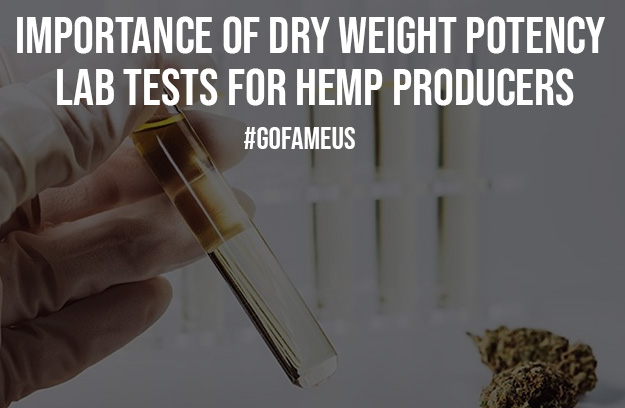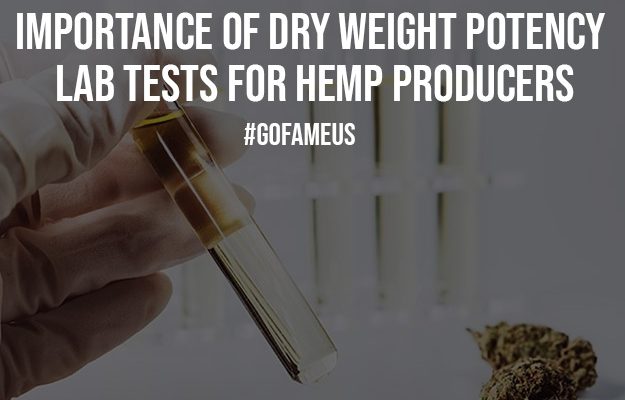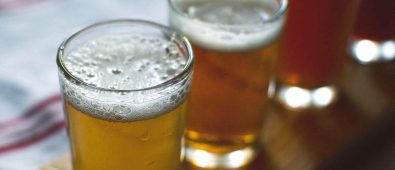Conducting potency tests is becoming more of a necessity than an option over the last couple of years. Hemp being the state’s newcomer crop, these tests have a massive role in determining the dry weight potency. Notably, the hemp industry faces several federal laws that have been put in place as hemp regulations of the U.S. Department of Agriculture.
Unfortunately, lab tests are still a significant challenge. Despite having the best soil, water, and forage testing laboratories, testing for cannabinoid compounds in hemp is easier said than done.
This is why independent laboratories including Botanacor labs to help hemp producers enjoy many capabilities. But why is it necessary to carry out this dry weight potency lab tests?

Here is why:
Meeting federal rules and regulations
When it comes to hemp products, producers are required to meet specific guidelines. For instance, the recommended THC concentrations should never exceed 0.3% on a dry weight basis.
If it is more than that, then the crop should be destroyed. Likewise, as a hemp producer, you are expected to have a license. To obtain the permit, you will need a background check and seek third-party dry weight potency lab tests to determine the THC levels.
Since the THC profile keeps on changing, these tests are essential for the day-to-day management of THC levels present in the products. If your product does not meet the set regulations, there is no other option but to get destroyed.
However, research and a variety of trials have been brought up to help producers develop management strategies that should be useful in salvaging their investment.
Also Read: Getting Ready for Drug Testing
Ensures moisture does not affect the THC content.
THC is indicated as a percentage of biomass in Botanacor’s new test for total THC computed from dry weight. THC content can only be determined accurately by calculating total THC on a dry weight basis, regardless of the initial moisture content of the samples submitted for testing.
But moisture can add weight and skew the THC content estimate, affecting product safety, uniformity, and potency, as well as compliance with regulatory requirements.
Ensuring sample tests do not test higher than 0.3% THC
Hemp tested again and found to contain more than 0.9% delta9 THC is disposed of as required by the USDA Plan for disposing of non-compliant hemp in the states. However, before any crop is disposed of, the results must be pretty certain.
As decided by the state, the margin of error is 3 percent (three-tenths). The margin of error is +/- 0.06, for example, if the outcome is 0.35 percent.
Providing certificates of analysis
Cannabis samples are tested for purity and content using COAs (Certificate Of Analysis). Cannabinoid potency analyses in our lab typically comprise a measurement of the sample’s cannabinoid levels stated in percentage, i.e., how much of each cannabinoid is present in the model by dry weight.
If the sample is plant material, extract, or infused product, we will report in weight percent, mg/g, or mg/mL, depending on the type of sample provided.
Your results will be marked if you are a hemp grower seeking compliance with the 0.3 percent THC restriction. To learn more about your plant’s cannabinoids content, terpene profile, or other testing elements, such as pesticide residue or foreign-material contamination, you may request tests at any time with the U.S. Department of Agriculture.
Laboratories are the most reliable approach to assure that your crop or hemp product is free of pesticide residues or microbiological contamination. Standard profile panels feature terpene profiling to give growers and processors a better notion of possible applications, flavor characteristics, and entourage effects that the presence of these compounds can bring about.
Also Read: A Comprehensive Overview of the Follicle-Stimulating Hormone (FSH) Test
The terpene content is given as a weighted proportion in the graph. If you purchased additional tests like moisture content or heavy metal screening, the results would be reflected on the Certificate of Authenticity (COA).
Dry weight potency lab tests are essential for hemp producers since they are the only way to know what products to expect. With laboratory testing, it becomes more comfortable to follow federal rules and regulations while ensuring you have an accurate, reliable, and cost-effective system.
Dry weight potency lab tests have become a game-changer in the production process of hemp.




